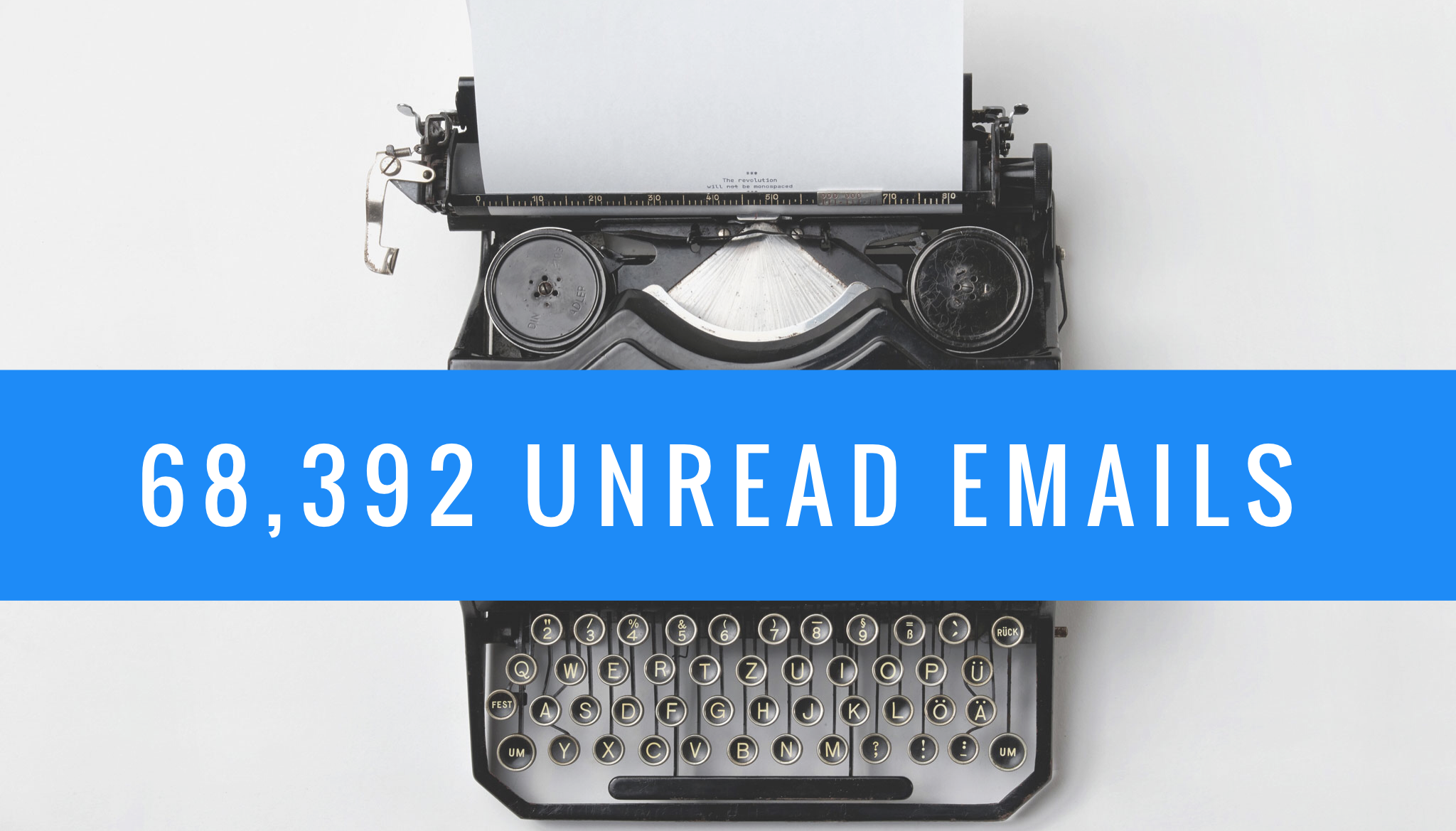Prof Alex Edmans (currently of LBS) writes this on dealing with email.
Excerpt from his recent Gresham Lecture series on modern day business skills, Links end .
Dealing with Email
A McKinsey study found that the average interaction worker spends 28% of his day reading and responding to email.
This is likely a significant underestimate of the true cost of email for several reasons. First, interrupting a task to check email and then resuming the task leads to major inefficiencies, because it takes a while to get back into the swing of things. A study found that it takes 23 minutes and 15 seconds to resume a task after interrupting it (and that workers stay on a task for only 3 minutes and 5 seconds). Rather than checking email each time a new one is received, it’s much more efficient to “batch-process” email. Close Outlook, and potentially put on an internet blocker for a finite set of time. Once the time is up, you can then check email and deal with several all in one go.
Note that it’s better to put the internet blocker on for a finite amount of time (say half an hour), rather than keeping it on as long as it takes for you to complete your current task. Tasks often take much longer than you think, and the mind focuses better when there’s a clear end point. If you’re 25 minutes in and craving distraction, but know that the internet blocker will expire in 5 minutes, most people can hold out for those extra 5 minutes. If you’re taking a 30-minute spinning class and there’s 5 minutes left, you’ll push yourself until the end. But if your personal trainer asked you to ride an exercise bike until she says stop, you’ll put in far less effort.
Second, constant checking of email causes addiction and makes it difficult to focus even during “work” time. Checking email is similar to gambling. At slot machines, you usually lose money. But people get addicted to slot machines since there’s the rare possibility of a jackpot. Similarly, most emails are undesirable – a boss or client asking you to do a task. But we’re addicted to email because, once in a while we hit the jackpot – an email conveying good news, or from a friend we’d lost contact with. Thus, incessantly checking email makes us more addicted to “gambling” and requires us to keep feeding our habit, rather than being able to concentrate. I know of people who can’t even go to the toilet without using their phone at the same time, or have a drink or dinner with friends without constantly checking email. They think they’re saving the odd few seconds by dealing with email when the conversation gets boring, but this is far outweighed by the effect on their brains. Studies have shown that a constant craving for distraction changes the neuroplasticity of the brain – certain neural pathways form and others get closed down, which means that the same people find it difficult to focus when they get down to actually doing work. When you do a plank, you build up your core muscles which allow you to hold the plank for longer. Similarly, when you concentrate, you build up your mental “muscle” which allows you to concentrate for longer.
One solution is to take email completely off your phone. This might seem an unrealistic solution, because email is so essential to 21st century life. Yet I did this several years ago and have had no adverse consequences. But doesn’t this mean that emails pile up – don’t I end up wasting time on a subway ride when I could use it to deal with several emails? No. Because I still have email on my iPad, and so can deal with email when commuting or between meetings. The crux is that I can’t suddenly whip out my iPad if I’m having a drink and the conversation turns to a topic I’m not interested in, whereas I could with my iPhone. Having email only on my iPad and not my iPhone prevents me from “mindless” email checking while still allowing me to check email during downtime. If you can’t go without email on your phone, at least remove the buzz when you get a new email, and the notification “badge” which tells you how many emails are unread. If you go on your phone to use Google Maps, but see that there’s 5 unread emails, this begs you to check email – to see if you’ve won the lottery.”
This chimes a lot with what I have had to say on email – blog post here and here.
And it’s from Alex’s talk on time management – complete talk available here – write up here.
His series on businesses serving society also available through Gresham worth watching.


